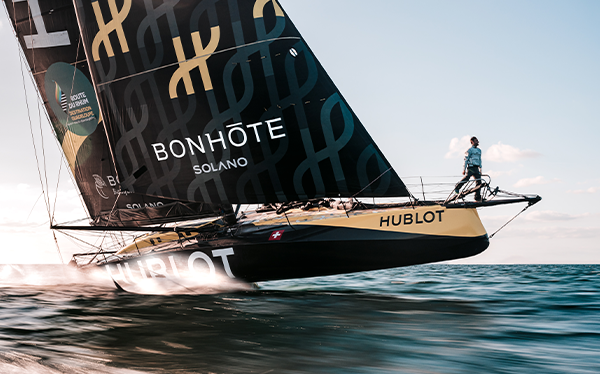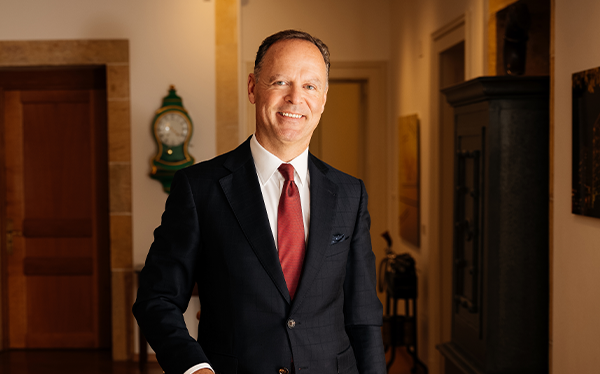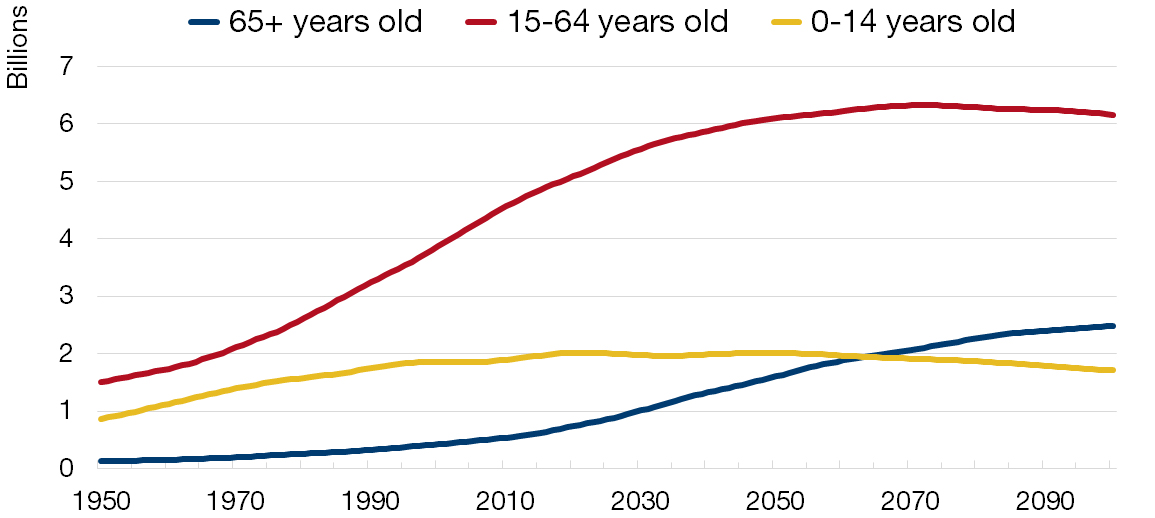Analyse October 2022
Agents of change
Tomorrow’s world is shaped by the key trends of the present. Automation, digitalisation, the climate and population ageing are prime examples of such trends as are innovation, new forms of mobility, artificial intelligence and millennials’ consumption patterns.
Their impact is the result of their complex interplay. Digitalisation is evidently a prerequisite for artificial intelligence. Likewise, the climate transition depends on new less energy-intensive forms of mobility and support from artificial intelligence to fill the void left by the ageing population-fuelled labour shortage.
Yet it’s crucial to differentiate between genuine long-term trends and mere fads. Where they seem to have the potential to revolutionise existing processes, some innovations are trumpeted as disruptive as they come to light. In these early days, the relevant technology can get hyped up in a media frenzy, often creating unrealistic expectations about its short-term potential.
At this point, there are many lingering uncertainties, and wide-scale adoption can take years (if indeed it ever actually happens). So the first stages are often characterised by extensive media coverage and little or no profitability.
Examples from the past
Just think back to all the hype surrounding the invention of 3D printing barely ten years ago. There were incredibly high hopes that new manufacturing processes would emerge. But today the three main companies regarded as the standard bearers for the 3D printing sector, which investors can access via the US ETF Print, for example, have still not managed to generate any profits.
The same applies to the metaverse. Meta, or Facebook as it used to be known, has tremendous potential as a business, but the metaverse does not contribute any of its profits at present. Investing in these specific, immature themes can thus be a highly speculative exercise.
Choosing the right topic
Where technologies truly establish themselves, the results are very different. For example, research suggests artificial intelligence may generate USD 15,700 billion globally by 2030, or more than the combined GDP of China and India.
Population ageing and millennial consumption are also clearly established trends. If there’s one variable that can be predicted accurately over the long haul, it’s demographics, and the shape of the age pyramid is changing. According to the WHO, the number of over 60s is set to reach 2.1 billion (or 21.8% of the global population) by 2050. Meanwhile, millennials and younger generations are set to make up 72% of the population in 2030 (Boston Consulting Group). One distinguishing characteristic of millennials is that they have grown up with the internet. They are the first generation to have a different relationship to consumption (online), home ownership (renting) and work (working from home). They are also more environmentally minded than previous generations.
The main challenge for investors is to pick businesses active in the established secular trends we mentioned earlier. The financial strength of a business is still crucial and does not solely reflect exposure to the targeted trend. The trends are the product of an already mature central business model. For example, companies addressing issues arising from population ageing often already operate in the medical sector. Navigating your way through this labyrinth is no easy task.
To help you, Bonhôte recently launched the new Megatrend Equity ESG fund focusing on future-oriented trends. Megatrend does not simply invest in companies claiming to be active in these areas; the fund selects relevant businesses with the highest possible ESG (environment, social and governance) rating. As a result, it invests in high-quality businesses with a lasting influence over the shape of the world.
Investing in these trends is a means of seizing the opportunities arising from the next challenges our society will have to address, and it’s also a way of contributing to the success of these efforts.
World population by age bracket
Latest news from the Bonhôte Group
New Bonhôte Megatrend ESG fund

Bonhôte stepping up commitment to sustainability with new Megatrend ESG fund investing in future-focused themes.
The new Bonhôte Strategies - Megatrend Equity ESG fund, launched today, will invest in future-focused themes while maximising the Bank’s social and environmental responsibility.
André Del Piero new Chief Client Officer (CCO)

André Del Piero joining Banque Bonhôte as Chief Client Officer (CCO) to replace Robin Richard ahead of his early retirement in 2025.
“I’m delighted to be joining such a financially secure and highly reputed bank,” said André. “Bonhôte is a top name achieving strong growth. I’m honoured to be taking on this new challenge, and I’m deeply grateful to my new colleagues for their warm welcome.”
New foundation for UniNE: Bonhôte matches initial capital

The University of Neuchâtel is now endowed with a foundation that has been established to raise funds via donations, legacies and other contributions: the “Foundation for the University of Neuchâtel”.
After being formed with set-up capital of CHF 50,000, the Foundation has just received its first donation from Banque Bonhôte & Cie SA, which has matched the initial funding.


 Analyse
Analyse
